If you are looking for the best affordable biotechnology degrees, you have come to the right place. Biotechnology is a scientific field that refers to the application of biology to the fields of technology, medicine, and engineering. It involves the use of biological systems such as genes, animals, and plants to design or develop new products. Therefore, a Bachelor’s in Biotechnology degree is useful in many areas, including the industrial, clinical, environmental, and agricultural industries. If you want to use science to develop new biofuels, solve hunger crises, or fight diseases, then a bachelor’s degree in biotechnology might just be the program for you.
Methodology
To capture the balance between quality and affordability, we ranked each of the following 50 schools based on tuition, student-to-faculty ratios, and graduation rates. To develop our initial list of colleges and universities, we searched for the term “biotechnology bachelor’s degree” using the College Navigator tool at the National Center for Education Statistics (NCES). We then narrowed down the search results from 75 schools into the top 50 based on the methodology. We also double-checked the information obtained from the NCES with each school’s website to ensure accuracy.
Average Cost of Attendance
Since the following ranking is dedicated to finding the 50 best affordable biotechnology degree programs, the first metric by which we awarded points was the average cost of attendance at each school. Although it can be tempting to want to attend the cheapest school on the list to save money, consider tuition as just one piece of the academic pie and look at the “bigger picture” of the schools you are considering. For this article, we ranked tuition based on the cost of one academic year of study for an in-state student using tuition information provided by each school’s website. We also included rates for out-of-state students for reference purposes only.
Points:
Under $7,500: 5 points
$7,500 to $15,000: 3 points
$15,001 and above: 1 point
Student-to-Faculty Ratio
Next, we awarded points based on each school’s student-to-faculty ratio as outlined below. While there are pros and cons to both large universities with high ratios and small colleges with low ratios, it is important to think about your own learning preferences and academic background. For example, do you need greater accountability for your work, or do you prefer to blend into the background in the classroom? For the following ranking, we determined that the colleges and universities with the lowest ratios, as reported by NCES, would receive the most points as these institutions may be more likely to offer more opportunities for smaller classes, one-on-one learning, and individualized studies.
Points:
10:1 or less: 3 points
11:1 to 15:1: 2 points
Greater than 15:1: 1 point
Graduation Rate
Finally, we used each school’s graduation rate from NCES as a measure of student satisfaction and success. After all, the ultimate goal is to complete your program requirements and graduate with your degree. Graduation rates tell us how satisfied students are with a particular institution as those who are happy are more likely to remain enrolled and graduate. In other words, schools with high graduation rates are doing something to keep their enrollment numbers high, whether that be offering affordable programs, employing experienced faculty members, or providing the academic support students need to succeed. For this reason, we awarded the most points to colleges and universities with the highest graduation rates.
Points
More than 50 percent: 3 points
Between 30 percent and 50 percent: 2 points
Less than 30 percent: 1 point
Ranking Top 50 Best Affordable Bachelor’s in Biotechnology Degrees
50. Ashland University
Ashland, Ohio

Points: 5
Program Website
Established in 1878 as Ashland College, Ashland University is a private institution of higher education that is affiliated with the Brethren Church. An affordable accredited university for a biotechnology degree, Ashland confers a high-value Bachelor of Science in Biochemistry that requires 120 hours of study. In addition to completing a rigorous curriculum, undergraduates benefit from exciting internship opportunities, access to leading faculty, state-of-the-art chemistry laboratories, and small class sizes. External research grants also provide additional opportunities to conduct hands-on research, and students may present their findings at professional conferences and scientific meetings.
Degree Options:
Biochemistry, BS
In-State Tuition: $22,000
Out-of-State Tuition: $22,000
Student-to-Faculty Ratio: 16:1
Graduation Rate: 61 percent
49. University of Maryland Global Campus
Largo, Maryland

Points: 5
Program Website
Students looking for an affordable online biotechnology degree may consider attending the University of Maryland Global Campus, a public university focused on online education. Established in 1947, UMGC provides two low-cost online bachelor’s degrees in the form of either a Bachelor of Science or a Bachelor of Technical and Professional Studies in Biotechnology. To enter the program, students must already have scientific and technical biotechnology knowledge through direct experience in the field and transferred credits. The major combines applied coursework and laboratory skills with upper-level study and a biotechnology internship experience. The curriculum examines topics such as cell biology, molecular biology, microbiology, bioinformatics, bioinstrumentation, biotechniques, and the chemical and biological sciences.
Degree Options:
Biotechnology Bachelor’s Degree
In-State Tuition: $9,000
Out-of-State Tuition: $14,970
Student-to-Faculty Ratio: 16:1
Graduation Rate: 15 percent
48. University of Houston-Downtown
Houston, Texas

Points: 5
Program Website
The University of Houston-Downtown is a public institution of higher education and a member of the University of Houston System. Founded in 1974, UHD offers an affordable Bachelor of Science in Biotechnology degree that provides a curriculum focused on the natural sciences, the liberal arts, and biotechnology. Students also benefit from flexible class options, hands-on experience, modern laboratories, faculty mentoring, and smaller classes. Undergraduates are also encouraged to participate in a research activity or field experience as part of the program. Graduates find lucrative jobs in research and development, sales and marketing, quality control and assurance, and manufacturing.
Degree Options:
Bachelor of Sciences in Biotechnology
In-State Tuition: $8,386
Out-of-State Tuition: $21,046
Student-to-Faculty Ratio: 18:1
Graduation Rate: 20 percent
47. University at Buffalo
Buffalo, New York

Points: 6
Program Website
The State University of New York (SUNY) at Buffalo, also known as the University at Buffalo, is a public research university and the largest campus by enrollment in the SUNY System. Founded as a private medical college in 1846, UB offers a top-value Bachelor of Science in Biotechnology that provides exceptional faculty interaction and a high level of one-on-one training. The lab-based program provides students with a working knowledge of genetics, molecular biology, bioseparation techniques, tissue and cell culture, immunology, and basic biochemistry. Laboratories are equipped with analytical, diagnostic, and biomedical research equipment that allows students to gain hands-on experience.
Degree Options:
Biotechnology BS
In-State Tuition: $24,740
Out-of-State Tuition: $24,740
Student-to-Faculty Ratio: 13:1
Graduation Rate: 76 percent
46. William Paterson University of New Jersey
Wayne, New Jersey

Points: 6
Program Website
The William Paterson University of New Jersey is a public institution of higher education that was founded in 1855, making it the second-oldest of the nine state universities and colleges in New Jersey. WPUNJ’s low-cost biotechnology degree is offered as a Bachelor of Science and consists of 64 credits in the major. Core coursework covers areas such as biochemistry, molecular biology, microbiology, general genetics, general biology, cell biology, and biotechnology. Students must also complete a plant elective in terrestrial plant ecology, plant physiology, general botany, or field botany. The economical bachelor’s degree program culminates in a biotechnology capstone course in the form of either an independent study or a biology seminar.
Degree Options:
Biotechnology, BS
In-State Tuition: $21,930
Out-of-State Tuition: $34,140
Student-to-Faculty Ratio: 14:1
Graduation Rate: 52 percent
45. University of New Hampshire at Manchester
Manchester, New Hampshire

Points: 6
Program Website
Founded in 1985, the University of New Hampshire at Manchester is the urban campus of the University of New Hampshire and one of the most affordable universities for a biotechnology degree. Exploring topics like genetics, molecular biology, and biochemistry, UNH Manchester’s low-cost Bachelor of Science in Biotechnology program puts students at the heart of one of the fastest-growing and newest scientific fields. Students have the opportunity to work with faculty and peers on research projects in state-of-the-art laboratories and intern at one of several local high-profile biotechnology firms. Graduates are prepared for graduate study or careers in biomedical engineering, occupational therapy, medicine, and more.
Degree Options:
Biotechnology Major (B.S.)
In-State Tuition: $15,150
Out-of-State Tuition: $31,660
Student-to-Faculty Ratio: 10:1
Graduation Rate: 41 percent
44. Ferris State University
Big Rapids, Michigan

Points: 6
Program Website
Ferris State University is a public research institution of higher education that began as Big Rapids Industrial School in 1884. FSU offers an affordable Bachelor of Science in Biotechnology degree that focuses on the principles of chemistry, biology, and the biomolecular sciences. The inexpensive, 121-credit curriculum is built on five areas of modern laboratory science: advanced protein isolation techniques, laboratory animal care, immunology, cell culture, and recombinant DNA. Independent research projects and internships are available and allow biotechnology majors to gain hands-on experience in a laboratory setting. Graduates are prepared to move into graduate-level study, professional school, or careers in agricultural, medical, or biological research laboratories.
Degree Options:
Biotechnology Bachelor of Science Degree
In-State Tuition: $12,908
Out-of-State Tuition: $12,908
Student-to-Faculty Ratio: 16:1
Graduation Rate: 49 percent
43. East Stroudsburg University
East Stroudsburg, Pennsylvania

Points: 6
Program Website
Founded in 1893, East Stroudsburg University of Pennsylvania is a public institution of higher education and one of 14 state universities that make up the Pennsylvania State System of Higher Education (PASSHE). Students looking for a cost-effective biotechnology degree can pursue a high-value Bachelor of Science in Biotechnology that features experienced, qualified faculty, practical field experiences, well-equipped laboratories, and small class sizes. The curriculum focuses provides an in-depth understanding of biotechnology instrumentation, methods, and techniques such as monoclonal antibody production, transformation, cell culture, DNA fingerprinting, Polymerase Chain Reaction (PMR), western blotting, ELISA, and electrophoresis. Applications include environmental bioremediation, plant and animal agriculture, and human health.
Degree Options:
Biotechnology (B.S.)
In-State Tuition: $11,476
Out-of-State Tuition: $24,482
Student-to-Faculty Ratio: 21:1
Graduation Rate: 50 percent
42. Western Kentucky University
Bowling Green, Kentucky
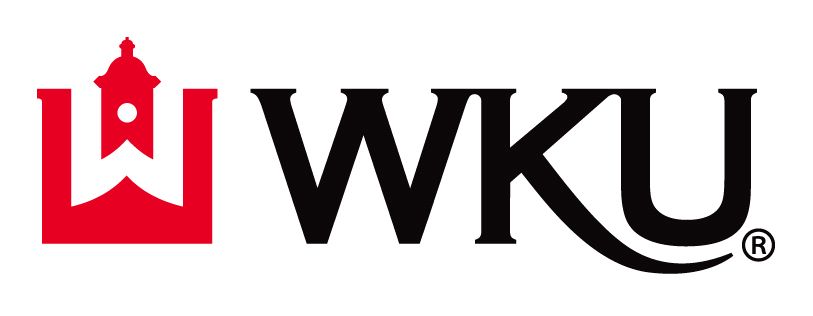
Points: 6
Program Website
One of the most affordable universities for a biotechnology degree, Western Kentucky University is a public university that began in 1906. Sitting atop a hill overlooking the Barren River valley, WKU offers a best-value molecular biotechnology major comprised of core coursework in areas such as cell biology, biochemistry, genetics, bioinformatics, and biostatistics. Students are exposed to new developments in genome editing, organoid research, cloning, personalized medicine, and genomics. Internships at local biotechnology companies and research opportunities with biotechnology-related faculty members are available for students seeking real-world, hands-on learning experiences.
Degree Options:
Molecular Biotechnology Major
In-State Tuition: $10,802
Out-of-State Tuition: $26,496
Student-to-Faculty Ratio: 18:1
Graduation Rate: 45 percent
41. St. Cloud State University
St. Cloud, Minnesota

Points: 6
Program Website
St. Cloud State University is a public institution of higher education that was established in 1869. One of the largest campuses in the Minnesota State Colleges and Universities System, SCSU offers a low-cost Bachelor of Science in Biochemistry and Molecular Biology: Biotechnology degree. Undergraduates build a strong foundation of scientific knowledge through coursework in physics, chemistry, and biology. They also have the opportunity to participate in laboratory-based or field-based faculty research projects that may culminate in presentations at scientific conferences and published papers. The economical bachelor’s degree program provides students with the credentials necessary to pursue professional programs and become biochemists, microbiologists, and virologists.
Degree Options:
BS in Biochemistry & Molecular Biology: Biotechnology
In-State Tuition: $8,656
Out-of-State Tuition: $16,948
Student-to-Faculty Ratio: 20:1
Graduation Rate: 44 percent
40. Purdue University Northwest
Westville, Indiana

Points: 6
Program Website
Established in 2016, Purdue University Northwest is a public university and a member of the Purdue University System. Students seeking an economical biotechnology degree can pursue a high-value Bachelor of Science in Biological Sciences with a concentration in biotechnology. The low-cost, 120-credit-hour, bachelor’s degree program features an interdisciplinary curriculum comprised of required courses in biology, genetics, chemistry, biochemistry, physics, calculus, and biostatistics. Students pursuing the biotechnology concentration are exposed to topics in basic microbiology, biotechnology, and recombinant DNA techniques. Undergraduates also gain hands-on experience in a laboratory setting and use modern biotechnology equipment to complement their classroom studies.
Degree Options:
Biological Sciences, BS, Concentration: Biotechnology
In-State Tuition: $7,813
Out-of-State Tuition: $11,336
Student-to-Faculty Ratio: 17:1
Graduation Rate: 37 percent
39. Kennesaw State University
Kennesaw, Georgia

Points: 6
Program Website
Kennesaw State University is a public institution of higher learning and a member of the University System of Georgia. Established in 1963, KSU is also recognized as one of the most affordable universities for a biotechnology degree. KSU’s inexpensive Bachelor of Science in Biology is a shared program offered by both the Department of Molecular and Cellular Biology and the Department of Ecology, Evolution, and Organismal Biology. In addition to completing coursework in the biology major, students may elect to pursue a biotechnology track that focuses on topics in biochemistry, molecular genetics, microbiology, and biotechnology. Students may further focus their program through a variety of electives in areas such as virology, food microbiology, cancer biology, bioinformatics, and diagnostic microbiology. Although not required, research internships and directed study opportunities are encouraged.
Degree Options:
Bachelor of Science in Biology
In-State Tuition: $7,568
Out-of-State Tuition: $21,636
Student-to-Faculty Ratio: 21:1
Graduation Rate: 43 percent
38. Claflin University
Orangeburg, South Carolina

Points: 7
Program Website
Established in 1869, Claflin University is a private historically black university affiliated with the United Methodist Church. Students looking for a high-value biotechnology degree can pursue a low-priced Bachelor of Science in Biotechnology by completing 122 to 131 hours of study. Major requirements include classes in biology, genetics, cell biology, chemistry, and biochemistry as well as plant biotechnology, bioinformatics, microbiology, and molecular biology. Beyond the classroom, students benefit from opportunities for research internships in which they apply what they have learned in hands-on, real-world situations. Graduates are prepared for careers in government, academia, and industry.
Degree Options:
Bachelor of Science in Biotechnology
In-State Tuition: $16,476
Out-of-State Tuition: $16,476
Student-to-Faculty Ratio: 14:1
Graduation Rate: 50 percent
37. University of Rhode Island
Kingston, Rhode Island

Points: 7
Program Website
Established in 1892, the University of Rhode Island is a public flagship campus and research university as well as the state’s sea- and land-grant institution of higher education. Students can pursue a low-cost Bachelor of Science in Medical Laboratory Science with an option in biotechnology through URI’s College of Education and Professional Studies. The innovative, economical bachelor’s degree program is structured in a 1+3 format in which the first year is devoted to intensive training in professional topics, biomanufacturing, biotechnology, human physiology, microbiology, chemistry, biochemistry, and biology. The remaining three years involve an internship at a life sciences company, after which students can pursue employment and finish their degree on a part-time basis.
Degree Options:
Biotechnology Option (BS in Medical Laboratory Science)
In-State Tuition: $14,566
Out-of-State Tuition: $31,686
Student-to-Faculty Ratio: 16:1
Graduation Rate: 67 percent
36. University of California-Davis
Davis, California
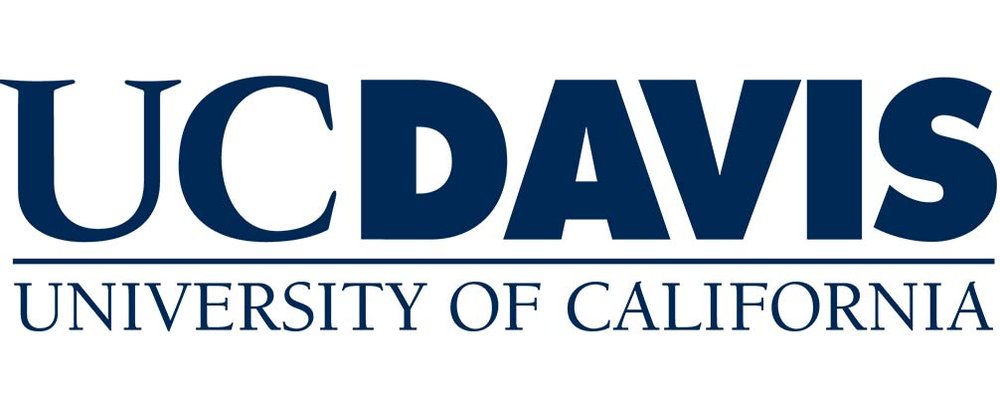
Points: 7
Program Website
The University of California-Davis is a public research and land-grant university as well as the third-largest campus by enrollment in the University of California System. Established in 1905 as University Farm, UC Davis offers a best-value biotechnology major that allows students to specialize in one of four areas: bioinformatics, plant biotechnology, animal biotechnology, or fermentation/microbial biotechnology. The first two years of the program focus on the basic principles and fundamental concepts of recombinant DNA technology, cell biology, molecular biology, and genetics. All students must complete an internship in a biotechnology government laboratory, university, or company to further enhance their experience and training.
Degree Options:
Biotechnology Major
In-State Tuition: $14,490
Out-of-State Tuition: $44,244
Student-to-Faculty Ratio: 20:1
Graduation Rate: 86 percent
35. Plymouth State University
Plymouth, New Hampshire

Points: 7
Program Website
Plymouth State University is a public university that was established in 1871 as Plymouth Normal School. A member of the University System of New Hampshire, PSU offers an affordable Bachelor of Arts in Cell and Molecular Biology that begins with a foundation in the chemical and biological principles and emphasizes their application to the function of living things. In their junior and senior years, undergraduates complete coursework in cell biology, molecular biology, and genetics. Students also have the opportunity to work with a faculty member to conduct original research. Graduates are prepared for graduate-level studies or careers in the pharmaceutical companies, the biological industry, and the biomedical fields.
Degree Options:
Cell and Molecular Biology, Bachelor of Arts
Biology, Bachelor of Arts
Biology, Bachelor of Science
In-State Tuition: $14,440
Out-of-State Tuition: $23,330
Student-to-Faculty Ratio: 17:1
Graduation Rate: 53 percent
34. University of Kentucky
Lexington, Kentucky

Points: 7
Program Website
Established in 1865, the University of Kentucky is a land-grant, public institution of higher education and one of the most affordable universities for a biotechnology degree. UK offers alow-cost Bachelor of Science in Agricultural and Medical Biotechnology that emphasizes hands-on learning in biology, chemistry, genetic engineering, molecular biology, and genetics. Other areas of study include microbiology, biochemistry, and biotechnology. Students must complete 120 to 128 hours to earn their degrees. Graduates are prepared to pursue advanced degrees as well as careers in biotechnology research and development, academia, government, and organizations.
Degree Options:
Agricultural and Medical Biotechnology
In-State Tuition: $12,360
Out-of-State Tuition: $30,680
Student-to-Faculty Ratio: 16:1
Graduation Rate: 66 percent
33. Colorado State University
Fort Collins, Colorado

Points: 7
Program Website
Colorado State University is a public land-grant research university and the flagship campus of the Colorado State University System. Established as Colorado Agricultural College in 1870, CSU offers an affordable major in soil and crop sciences with a concentration in plant biotechnology, genetics, and breeding. Areas of study include plant physiology, genetics, soil science, chemistry, and microbiology as well as molecular genetics, cell biology, entomology, ecology, and crop management. Students must complete a practicum experience and seminar before earning their degrees. Graduates are prepared for careers in plant breeding, basic research, sales, and product development.
Degree Options:
Major in Soil and Crop Sciences, Plant Biotechnology, Genetics, and Breeding Concentration
In-State Tuition: $12,058
Out-of-State Tuition: $30,780
Student-to-Faculty Ratio: 16:1
Graduation Rate: 71 percent
32. Brigham Young University
Provo, Utah
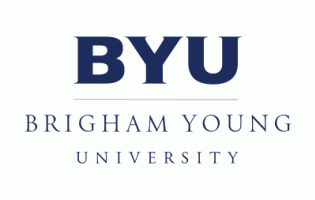
Points: 7
Program Website
Founded in 1875, Brigham Young University is a private research university owned by The Church of Jesus Christ of Latter-day Saints. Students who pursue the affordable Bachelor of Science in Genetics, Genomics, and Biotechnology at BYU choose to follow a science-only track or a track that combines science and business training, including a minor in business management. Both options include a comprehensive core of classes in chemistry, biology, and genetics as well as specialized courses. Students who are preparing for graduate school are encouraged to take additional classes in physics, while those seeking employment in the biotechnology technique may complete an academic internship. Graduates are prepared for careers in law, dentistry, medicine, genetic counseling, and research.
Degree Options:
Genetics, Genomics, and Biotechnology BS
In-State Tuition: $11,580
Out-of-State Tuition: $11,580
Student-to-Faculty Ratio: 20:1
Graduation Rate: 86 percent
31. University of Kansas
Overland Park, Kansas

Points: 7
Program Website
One of the most affordable universities for a biotechnology degree, the University of Kansas is a public research university that was founded in 1865. KU confers an inexpensive Bachelor of Applied Science in Biotechnology that is designed for undergraduates who have already earned an associate degree in a related field and who are looking to complete the remaining two years of a bachelor’s program. The low-cost curriculum consists of 120 credit hours of study, including an internship experience within industry or academia. Specifically, biotechnology-focused classes cover areas such as research methods, molecular and microbial techniques, immunology, and bioinformatics.
Degree Options:
Bachelor of Applied Science in Biotechnology Degree
In-State Tuition: $11,166
Out-of-State Tuition: $28,034
Student-to-Faculty Ratio: 17:1
Graduation Rate: 65 percent
30. University of Houston
Houston, Texas

Points: 7
Program Website
Students looking for a top-value biotechnology degree may consider attending the University of Houston, a public research university and the primary campus of the University of Houston System. Established in 1927, UH’s College of Natural Sciences and Mathematics and College of Technology work together to offer a low-cost Bachelor of Science in Biotechnology. This inexpensive bachelor’s degree program is the first one of its kind in the state to integrate environmental biotechnology, bioinformatics, nanobiotechnology, and bioprocessing into an undergraduate curriculum. Students can choose from a track in either bioinformatics or bioprocessing. The program also combines cutting-edge biotechnology teaching and research with practical, hands-on biotechnology training.
Degree Options:
Bachelor of Science in Biotechnology
In-State Tuition: $10,634
Out-of-State Tuition: $26,294
Student-to-Faculty Ratio: 22:1
Graduation Rate: 59 percent
29. Kent State University
Kent, Ohio

Points: 7
Program Website
Kent State University is a public research university that began in 1910 as a teacher-training school. Today, it operates seven additional regional campuses and is recognized as one of the most affordable universities for a biotechnology degree. KSU’s low-priced Bachelor of Science in Biotechnology degree is an interdisciplinary program that provides a strong foundation in chemistry and the biological sciences, practical training in different biotechnologies, and a solid understanding of biotechnology applications in biomedicine and industry. The high-value curriculum also includes a research experience at KSU and/or a hands-on internship at a biotechnology company. Graduates are prepared for careers in biomedical research as well as the pharmaceutical and biotechnology industries.
Degree Options:
Biotechnology – B.S.
In-State Tuition: $10,602
Out-of-State Tuition: $19,478
Student-to-Faculty Ratio: 20:1
Graduation Rate: 60 percent
28. Worcester State University
Worcester, Massachusetts

Points: 7
Program Website
Established in 1874, Worcester State University is a public liberal arts and sciences university and a top choice among undergraduates seeking an affordable degree in biotechnology. WSU offers a low-cost major in biotechnology that trains undergraduates in areas such as regulatory affairs, analytical chemistry, protein purification, molecular biology, and tissue culture. The best-value bachelor’s degree program is a joint effort provided by both the Department of Chemistry and the Department of Biology. Depending on their academic and professional goals, students may elect to pursue a biotechnology major with a concentration in pre-medicine. Graduates are qualified for careers in manufacturing, research and development, quality control, and quality insurance as well as for further education.
Degree Options:
Biotechnology
In-State Tuition: $10,161
Out-of-State Tuition: $$16,241
Student-to-Faculty Ratio: 17:1
Graduation Rate: 57 percent
27. University of Georgia
Athens, Georgia
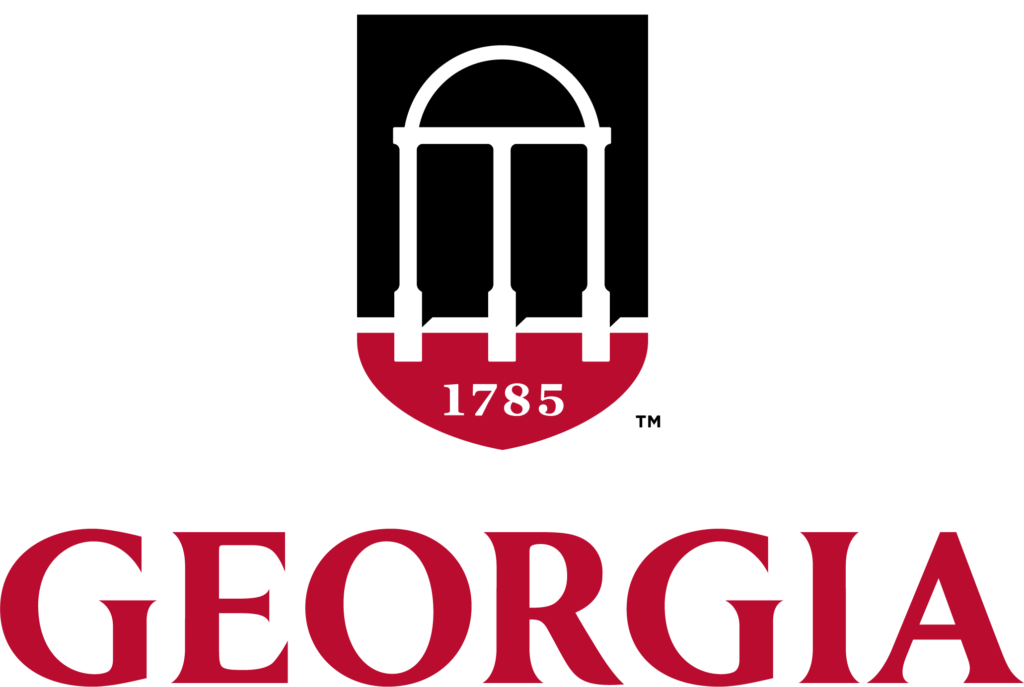
Points: 7
Program Website
Established in 1785, the University of Georgia is one of the oldest public institutions of higher education in the country. UGA is a top-ranked research university that offers an affordable applied biotechnology major through its College of Agricultural and Environmental Sciences. During the first two years, undergraduates study DNA extraction, molecular genetics, and molecular biology. During the final two years, students select a concentration area in plant science, food science, applied economics, or animal science. Study-abroad programs, undergraduate research opportunities, and internships with nonprofit organizations, federal and state agencies, and private companies are available. Students are also encouraged to participate in extracurricular student clubs and organizations.
Degree Options:
Applied Biotechnology Major
In-State Tuition: $9,790
Out-of-State Tuition: $28,830
Student-to-Faculty Ratio: 17:1
Graduation Rate: 86 percent
26. South Dakota State University
Brookings, South Dakota

Points: 7
Program Website
Established in 1881, South Dakota State University is a public research university and the largest, most comprehensive postsecondary institution in the state. SDSU offers an affordable Bachelor of Science in Biotechnology that focuses on technologies such as biomass conversion, reproductive intervention, tissue culture, genetic engineering, and molecular biology. The low-cost,120-credit curriculum also includes a capstone requirement in the form of an internship and/or an undergraduate research project. Beyond the classroom, students can participate in extracurricular clubs and organizations such as Women in STEM and the Microbiology Club.
Degree Options:
Biotechnology (B.S.)
In-State Tuition: $9,120
Out-of-State Tuition: $12,570
Student-to-Faculty Ratio: 17:1
Graduation Rate: 56 percent
25. North Dakota State University
Fargo, North Dakota

Points: 7
Program Website
North Dakota State University, founded in 1890 as North Dakota Agricultural College, is a public research university and a member of the North Dakota University System. Undergraduates can pursue an affordable biotechnology degree that requires at least 120 hours of study. Core coursework covers topics in biochemistry and molecular biology, chemistry, immunology, genetics, and biotechnology as well as a senior research project and thesis. NDSU also provides specialized equipment and laboratory facilities that are used for research and instruction. Graduates are prepared for employment at government and private research institutions as well as at biotechnology, agrichemical, and pharmaceutical companies.
Degree Options:
Biotechnology
In-State Tuition: $8,275
Out-of-State Tuition: $12,413
Student-to-Faculty Ratio: 19:1
Graduation Rate: 58 percent
24. Texas A&M University-Texarkana
Texarkana, Texas

Points: 7
Program Website
Established in 1971, Texas A&M University-Texarkana is a public institution of higher education dedicated to offering career-oriented studies and a member of the Texas A&M University System. Through the College of Arts, Science, and Education, students can pursue an inexpensive Bachelor of Science in Biotechnology that focuses on the healthcare and medical aspects of biotechnology. The low-priced curriculum consists of coursework in areas such as cytotechnology, histology, and immunology. Graduates are prepared for careers in quality assurance and quality control, research and development, and sales and marketing. Students must complete 120 semester credit hours to graduate with a biotechnology degree.
Degree Options:
Bachelor of Science in Biotechnology
In-State Tuition: $8,264
Out-of-State Tuition: $23,870
Student-to-Faculty Ratio: 15:1
Graduation Rate: 28 percent
23. University of Wisconsin-River Falls
River Falls, Wisconsin

Points: 7
Program Website
The University of Wisconsin-River Falls is a public institution of higher education and a member of the University of Wisconsin System. Established in 1874, UWRF offers an affordable degree in biotechnology that allows students to focus on areas of interest within the field such as industrial, agricultural, or medical biotechnology. Core areas of study in the high-value Bachelor of Science in Biotechnology program include cell and molecular biology, biochemistry, chemistry, genetics, and microbiology. The school’s location in the “biotechnology triangle” consisting of Rochester, the Twin Cities, and Madison means undergraduates have many opportunities for internships and careers in nearby biotech firms.
Degree Options:
Biotechnology Degree
In-State Tuition: $8,038
Out-of-State Tuition: $15,611
Student-to-Faculty Ratio: 22:1
Graduation Rate: 57 percent
22. University of Nebraska at Omaha
Omaha, Nebraska

Points: 7
Program Website
Founded in 1908 as the University of Omaha, the University of Nebraska at Omaha is a public research university and a member of the University of Nebraska System. An affordable university for a biotechnology degree, UNO offers a low-cost Bachelor of Science in Molecular and Biomedical Biology that consists of 120 hours of study. Required courses cover immunology, molecular biology of the cell, genetics, and biology. To complete the program, students may select one of two tracks: molecular biotechnology, which prepares students for industry jobs, professional schools, and graduate study, or biomedical sciences, which prepares students for medical school programs.
Degree Options:
Molecular and Biomedical Biology, Bachelor of Science
In-State Tuition: $7,790
Out-of-State Tuition: $20,764
Student-to-Faculty Ratio: 15:1
Graduation Rate: 48 percent
21. Southern Connecticut State University
New Haven, Connecticut

Points: 8
Program Website
Southern Connecticut State University is a public institution of higher learning and a member of the Connecticut State University System. Founded in 1893, SCSU offers an affordable Bachelor of Science in Biotechnology that requires more mathematics and chemistry courses than the Bachelor of Science and Bachelor of Arts in Biology programs. After the first year, all of the required biology courses are focused on cellular and molecular biology. Students also earn a chemistry minor with this degree, and they complete a required research internship experience. Graduates are prepared for careers or graduate studies in biotechnology, molecular biology, and bioscience fields such as medicine.
Degree Options:
Biotechnology, B.S.
In-State Tuition: $11,446
Out-of-State Tuition: $24,406
Student-to-Faculty Ratio: 14:1
Graduation Rate: 51 percent
20. University of Hawaii at Manoa
Manoa, Hawaii

Points: 8
Program Website
The University of Hawaii at Manoa is a public research university and the flagship campus of the University of Hawaii System. Founded in 1907, UH Manoa is also recognized as one of the most affordable universities for a biotechnology degree. Undergraduates can pursue an economical Bachelor of Science in Molecular Biosciences and Biotechnology that provides a thorough foundation in the life sciences, biotechnology, genetics, biochemistry, and molecular biology. Students also participate in hands-on laboratory work that culminates in a senior thesis and research. Graduates are prepared for advanced education, research, and teaching positions as well as careers in the biotechnology, pharmaceutical, environmental, agricultural, and forensics industries.
Degree Options:
BS in Molecular Biosciences and Biotechnology
In-State Tuition: $11,304
Out-of-State Tuition: $34,218
Student-to-Faculty Ratio: 12:1
Graduation Rate: 59 percent
19. Salem State University
Salem, Massachusetts

Points: 8
Program Website
Established in 1854 as Salem Normal School, Salem State University is a public institution of higher learning and a top choice among undergraduates seeking an affordable biotechnology degree. Salem State offers a low-cost Bachelor of Science in Biology with a specialized option in biotechnology. Students complete a curriculum of core biology courses while developing practical and theoretical skills through the study of molecular and cell biology. Other areas of study include biological chemistry and microbiology and its applications. Support courses allow undergraduates to explore applications such as bioinformatics and chemistry in greater depth.
Degree Options:
Bachelor of Science in Biology
In-State Tuition: $11,284
Out-of-State Tuition: $18,065
Student-to-Faculty Ratio: 14:1
Graduation Rate: 58 percent
18. Washington State University
Pullman, Washington

Points: 8
Program Website
Established in 1890, Washington State University is a public research institution of higher education and one of the American West’s oldest land-grant universities. Students seeking a best-value biotechnology degree can pursue WSU’s high-value major in agricultural biotechnology. The inexpensive curriculum provides a comprehensive understanding of microbiology and cell biology, horticulture, crops and soil sciences, biochemistry and organic chemistry, entomology, plant pathology, and genetics. Beyond the classroom, undergraduates have many opportunities to participate in hands-on research experiences. Graduates are prepared to pursue advanced degrees or careers as plant geneticists and breeders, plant pathologists, biotechnologists, and molecular biologists.
Degree Options:
Agricultural Biotechnology Major
In-State Tuition: $10,510
Out-of-State Tuition: $25,088
Student-to-Faculty Ratio: 15:1
Graduation Rate: 59 percent
17. University of Idaho
Moscow, Idaho

Points: 8
Program Website
One of the most affordable universities for a biotechnology degree, the University of Idaho is the state’s primary research and land-grant university. UIdaho confers a unique and low-cost Bachelor of Science in Biotechnology and Plant Genomics that teaches advanced laboratory skills involving immunology, genetics, and physiology. The high-value curriculum also explores landscapes, fiber, fuel, and food production. Students have the opportunity to complete their own independent study based on their interests, and they learn cutting-edge molecular techniques by working in on-campus laboratories. Undergraduates also access computer-controlled greenhouses and plant science farms. Internship opportunities are available with companies that regenerate landscape plants or potatoes from tissues or cells.
Degree Options:
B.S. Biotechnology and Plant Genomics
In-State Tuition: $8,304
Out-of-State Tuition: $27,540
Student-to-Faculty Ratio: 15:1
Graduation Rate: 59 percent
16. Minnesota State University-Mankato
Mankato, Minnesota

Points: 8
Program Website
Founded in 1868 as Mankato Normal School, Minnesota State University-Mankato is the second-oldest member of the Minnesota State Colleges and Universities System. Students seeking a best-value biotechnology degree can pursue a top-value Bachelor of Science in Biotechnology. Required coursework covers topics in cell biology, microbiology, immunology, and biological engineering analysis. Students also delve into biochemistry, chemistry, and molecular biology. This inexpensive bachelor’s degree program culminates in a capstone experience in the form of individual study, an internship, or a biotechnology project/laboratory course. Undergraduates must complete a minimum of 120 credits to graduate with a B.S. in Biotechnology degree.
Degree Options:
Biotechnology (BS)
In-State Tuition: $7,394
Out-of-State Tuition: $15,687
Student-to-Faculty Ratio: 22:1
Graduation Rate: 50 percent
15. Montana State University
Bozeman, Montana

Points: 8
Program Website
Established in 1893, Montana State University is a public land-grant research university and the largest institution of higher learning in the state. MSU confers an affordable Bachelor of Science in Biotechnology that features three emphasis areas for upper-division coursework: animal systems, microbial systems, and plant systems. All high-quality biotechnology options feature the same requirements for the freshman and sophomore years, including courses in chemistry, biotechnology, cellular and molecular biology, genetics, and microbiology. Offered through MSU’s College of Agriculture, the biotechnology program prepares students for careers in either the industrial or academic setting as well as for entry into graduate schools for further study.
Degree Options:
Bachelor of Science in Biotechnology
In-State Tuition: $7,320
Out-of-State Tuition: $25,850
Student-to-Faculty Ratio: 19:1
Graduation Rate: 57 percent
14. SUNY College of Agriculture and Technology at Cobleskill
Cobleskill, New York

Points: 8
Program Website
The State University of New York (SUNY) College of Agriculture and Technology at Cobleskill is a public institution of higher education that began in 1911 as the Schoharie State School of Agriculture. SUNY Cobleskill confers an affordable Bachelor of Science in Biotechnology that consists of 120 credit hours of study, including a 12-credit professional internship. Specialization areas include plants, microorganisms, and animals used in modern agriculture. Capstone courses provide practical and theoretical knowledge of genetic engineering and molecular biology. The program is ideal for undergraduates looking to enter the workforce immediately after earning their degrees.
Degree Options:
Biotechnology, Bachelor of Science (BS)
In-State Tuition: $7,070
Out-of-State Tuition: $16,980
Student-to-Faculty Ratio: 16:1
Graduation Rate: 40 percent
13. CUNY York College
Jamaica, New York

Points: 8
Program Website
York College is a senior member of the City University of New York (CUNY) System and one of the most affordable colleges for a biotechnology degree. Founded in 1966, York College offers an interdisciplinary, low-cost Bachelor of Science in Biotechnology degree that provides a strong foundation in biochemistry, cell and molecular biology, genetics, and biotechnology. Undergraduates also learn research and design methods and acquire essential laboratory skills. Beyond the classroom, students have the opportunity to participate in independent research projects and prepare for careers in the food, agricultural, chemical, pharmaceutical, and biomedical industries.
Degree Options:
Biotechnology (BS)
In-State Tuition: $6,930
Out-of-State Tuition: $18,600
Student-to-Faculty Ratio: 20:1
Graduation Rate: 30 percent
12. Florida Gulf Coast University
Fort Myers, Florida

Points: 8
Program Website
Established in 1991, Florida Gulf Coast University is a public research university and the second-youngest member of the 12-campus State University System of Florida. FGCU offers an affordable Bachelor of Science in Biotechnology that provides undergraduate research experiences and emphasizes hands-on learning. The best-value curriculum provides an understanding of living organisms at the molecular and cellular levels, and students learn how to apply biological knowledge to solve problems in the marine science, environmental, medical, and agricultural fields. Students further develop their skills and scientific knowledge in a chosen career through hands-on internships. Beyond the classroom, students can engage in the community, university, and department with more than 15 organizations and clubs.
Degree Options:
Biotechnology BS
In-State Tuition: $6,118
Out-of-State Tuition: $25,162
Student-to-Faculty Ratio: 22:1
Graduation Rate: 48 percent
11. Utah Valley University
Orem, Utah

Points: 8
Program Website
Established in 1941 as Utah Valley State College, Utah Valley University is a public institution of higher learning and one of the most affordable universities for a biotechnology degree. UVU confers an inexpensive Bachelor of Science in Biotechnology that prepares students to enter the fields of forensics, pharmaceuticals, academia, and research. Students must complete 124 credits of study, including core courses in cell and molecular biology, molecular evolution and bioinformatics, genetics, and microbiology. Undergraduates may also study cell culture techniques, protein purification, and DNA manipulation. Students must complete a biotechnology internship to graduate from the program.
Degree Options:
Biotechnology, B.S.
In-State Tuition: $5,820
Out-of-State Tuition: $16,570
Student-to-Faculty Ratio: 22:1
Graduation Rate: 35 percent
10. Fayetteville State University
Fayetteville, North Carolina
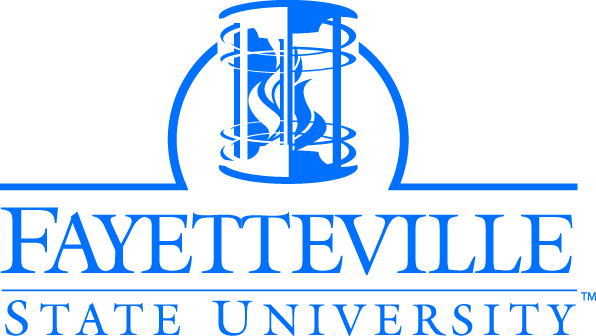
Points: 8
Program Website
Established in 1867, Fayetteville State University is a public historically black university and a member of both the University of North Carolina System and the Thurgood Marshall College Fund. Students looking for an affordable biotechnology degree can pursue FSU’s inexpensive Bachelor of Science in Biology with a concentration in biotechnology and molecular biology. In addition to completing core courses in chemistry, cellular biology, microbiology and immunology, and zoology, undergraduates also take classes in biotechnology, biotechniques, bioinformatics, plant biotechnology, and nanobiotechnology. Research projects and several on-campus clubs and organizations provide opportunities for students to further develop their knowledge and skills outside of the classroom.
Degree Options:
BS Biology With a Concentration in Biotechnology and Molecular Biology
In-State Tuition: $5,274
Out-of-State Tuition: $14,590
Student-to-Faculty Ratio: 17:1
Graduation Rate: 35 percent
9. University of North Carolina at Pembroke
Pembroke, North Carolina

Points: 8
Program Website
The University of North Carolina at Pembroke, established in 1887, is a public institution of higher education and a member of the University of North Carolina System. Students seeking an inexpensive biotechnology degree can earn UNC Pembroke’s inexpensive Bachelor of Science in Biotechnology by completing 120 semester hours of study. Core courses cover biotechnology, cell biology, research strategies, genetics, microbiology, and the principles of biology. Students may further focus their degree through electives in areas such as developmental biology, DNA analysis, biochemistry, bioseparations technology, immunology, or plant physiology.
Degree Options:
Biotechnology, B.S.
In-State Tuition: $3,490
Out-of-State Tuition: $7,490
Student-to-Faculty Ratio: 18:1
Graduation Rate: 41 percent
8. Miami Dade College
Miami, Florida

Points: 8
Program Website
Miami Dade College, founded in 1959, is a public institution of higher education and the largest college by enrollment in the Florida College System. MDC confers an affordable BS in Biological Sciences with a concentration in biotechnology that focuses on organic chemistry and chemistry, virology, bioethics, ecology, evolution, genetics, and biology. In addition to completing a rigorous curriculum, students participate in a capstone internship that moves beyond the classroom and allows undergraduates to put what they have learned to the test in the real world.
Degree Options:
Bachelor of Science in Biological Sciences, Biotechnology Concentration
In-State Tuition: $2,837
Out-of-State Tuition: $9,660
Student-to-Faculty Ratio: 19:1
Graduation Rate: 35 percent
7. California State Polytechnic University-Pomona
Pomona, California

Points: 9
Program Website
Established in 1938, California State Polytechnic University-Pomona is one of two polytechnic universities that make up the California State University System. An accredited university for a biotechnology degree, Cal Poly Pomona offers a low-cost BS in Biotechnology degree that includes core courses in microbiology, biochemistry, organic chemistry, general chemistry, cell and molecular biology, and biotechnology. Students select upper-division electives from six clusters to further focus their program: business, agriculture, biochemistry and molecular separation techniques, microbiology and pathology, physiology, and molecular biology and genetics. The program culminates in an internship in a biotechnology laboratory that provides practical experience in the field.
Degree Options:
Biotechnology, B.S.
In-State Tuition: $7,396
Out-of-State Tuition: $19,276
Student-to-Faculty Ratio: 28:1
Graduation Rate: 71 percent
6. James Madison University
Harrisonburg, Virginia
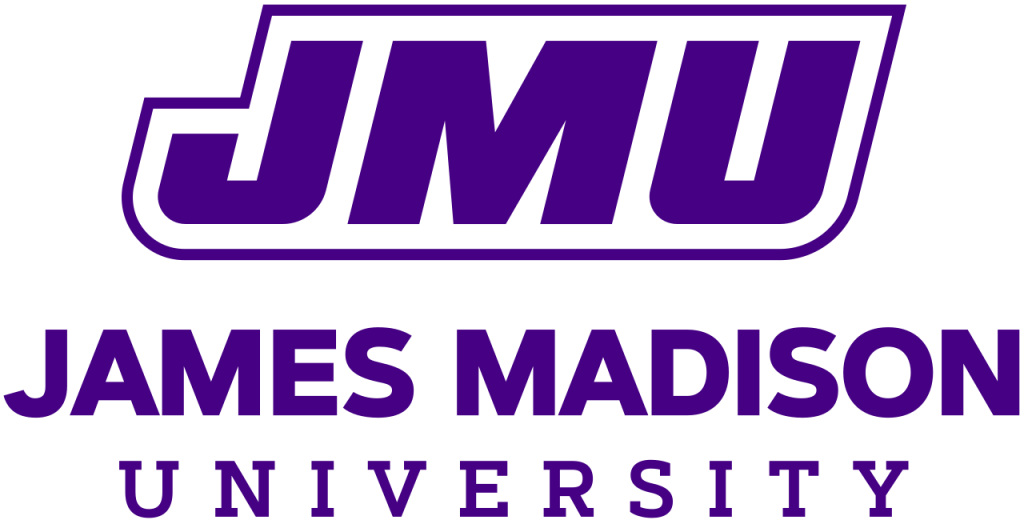
Points: 9
Program Website
Founded as the State Normal and Industrial School for Women at Harrisonburg in 1908, James Madison University is a public research university located in the Shenandoah Valley. Students seeking a low-cost biotechnology degree can pursue an interdisciplinary Bachelor of Science in Biotechnology offered by the Departments of Chemistry and Biochemistry, Biology, and Integrated Science and Technology. The topo-value curriculum is comprised of 15 hours of electives, 17 hours of biotechnology transition and core courses, and 47 to 50 hours of science foundation classes. Biotechnology, research, technology, and pharmaceutical internships are also available. The combination of cross-disciplinary breadth and scientific/technical depth prepares graduates to pursue careers in advanced studies, government, and industry.
Degree Options:
Biotechnology Major
In-State Tuition: $7,250
Out-of-State Tuition: $24,150
Student-to-Faculty Ratio: 16:1
Graduation Rate: 84 percent
5. University of Central Florida
Orlando, Florida
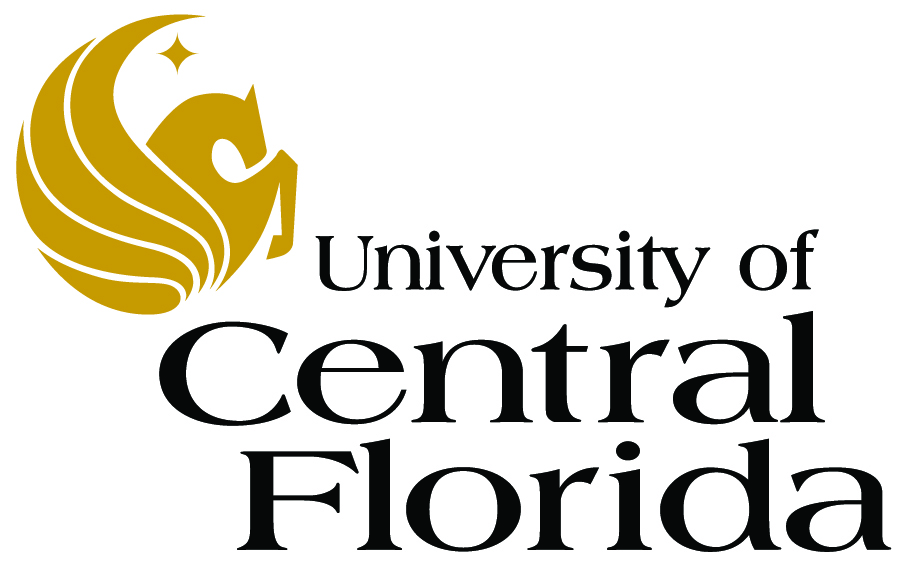
Points: 9
Program Website
Established as Florida Technological University in 1968, the University of Central Florida is a public research university and one of the largest institutions of higher learning by enrollment in the country. Offered through the College of Medicine, UCF’s affordable BS in Biotechnology consists of core courses in mathematics, physics, chemistry, and the life sciences. Students may then select two electives from areas such as microbiology, biochemistry, virology, immunobiology, endocrinology, genetics, or molecular biology. Although not required, undergraduates are encouraged to complete an internship or directed independent research project to gain hands-on experience in the field of biotechnology.
Degree Options:
Biotechnology (BS)
In-State Tuition: $6,368
Out-of-State Tuition: $22,467
Student-to-Faculty Ratio: 30:1
Graduation Rate: 73 percent
4. Winston-Salem State University
Winston-Salem, North Carolina

Points: 9
Program Website
One of the most affordable universities for a biotechnology degree, Winston-Salem State University is a public historically black research university and a constituent school of the University of North Carolina. Founded in 1892, WSSU provides a low-cost Bachelor of Science in Biology with a concentration in biotechnology that paves the way for a cutting-edge, high-demand laboratory science career. In addition to completing foundation courses, undergraduates take at least one course from each of the following four areas: cells and molecules, biotechniques and lab skills, structure and function, and heredity, evolution, and diversity. Specific areas of study may include molecular biology and biotechnology, microbiology, tissue culture, molecular genetics, and bioinformatics.
Degree Options:
Bachelor of Science in Biology, Biotechnology Concentration
In-State Tuition: $5,941
Out-of-State Tuition: $16,188
Student-to-Faculty Ratio: 14:1
Graduation Rate: 48 percent
3. California State University-San Marcos
San Marcos, California

Points: 9
Program Website
California State University-San Marcos is a public university and one of 23 institutions that make up the California State University System. Established in 1989, Cal State San Marcos provides a low-cost Bachelor of Science in Biotechnology that requires 120 units of study. The high-value curriculum provides a solid foundation in biochemistry and molecular biosciences while introducing students to various applied biotechnologies. Students also take core classes in fundamental business management and marketing theory. Beyond the classroom, undergraduates have access to well-equipped, modern laboratories that feature state-of-the-art equipment and instrumentation. Student research opportunities in faculty laboratories and internship positions with biotechnology companies allow students to gain valuable real-world experience.
Degree Options:
B.S. in Biotechnology
In-State Tuition: $5,742
Out-of-State Tuition: $15,246
Student-to-Faculty Ratio: 25:1
Graduation Rate: 55 percent
2. SUNY College of Environmental Science and Forestry
Syracuse, New York

Points: 10
Program Website
Established in 1911, the State University of New York (SUNY) College of Environmental Science and Forestry is a public institution of higher education and a member of the SUNY System. Recognized as one of the most affordable universities for a biotechnology degree, ESF offers a high-quality Bachelor of Science in Biotechnology that prepares students to tackle medical, agricultural, natural resource, and environmental problems through training in genetic engineering, biochemistry, cell biology, molecular biology, and related biological disciplines. The inexpensive bachelor’s degree program also features a strong practical experience component, and students are required to participate in both an independent research project and an internship to gain real-world experience.
Degree Options:
Biotechnology Bachelor of Science
In-State Tuition: $7,070
Out-of-State Tuition: $16,980
Student-to-Faculty Ratio: 14:1
Graduation Rate: 77 percent
1. CUNY City College of New York
New York, New York

Points: 10
Program Website
Topping our list of the most affordable universities for a biotechnology degree is City University of New York (CUNY) City College. Established in 1847, CCNY is the oldest of the 24 campuses that make up the CUNY System as well as its flagship institution. CCNY confers an affordable Bachelor of Science in Biotechnology that provides a solid foundation in physics, chemistry, and biology and their applications to biotechnology. Required courses cover cell and molecular biology, genetics, and biological foundations. Students may explore specific interests through electives and gain practical experience through a required research component in the form of either an honors research program or an independent study.
Degree Options:
B.S. Biotechnology
In-State Tuition: $6,930
Out-of-State Tuition: $18,600
Student-to-Faculty Ratio: 14:1
Graduation Rate: 55 percent
Frequently Asked Questions
What are the Career Options for a Bachelor’s in Biotechnology Degree?
The industrial, medical, educational, clinical, environmental, and agricultural industries are all seeking qualified professionals who have earned a bachelor’s degree in biotechnology. Nearly every position in biotechnology requires a broad skill set. For example, medical scientists must be able to understand research design and methodologies to assess the effectiveness of new technologies. Biological technicians must be able to set up and maintain laboratory equipment and instruments.
- Natural Sciences Manager
- Biotechnology Research Scientist
- Research Associate
- Biological Technician
- Biomedical Engineer
- Mirobiologist
- Agricultural Engineer
- Agricultural and Food Scientist
- Medical and Clinical Laboratory Technologist and Technician
Over the past several years, biotechnology jobs increasingly require education beyond the associate degree, which is where a bachelor’s comes in. Professionals in the field of biotechnology must work with large datasets, conduct experiments, and use and develop complex medical instruments and devices. A master’s degree prepares graduate students for supervisory and specialized roles such as laboratory manager, while a doctorate is typically required of medical scientists, biophysicists, and chemists.
Biotechnology careers give students the opportunity to treat chronic medical issues, work on the cutting edge of technological development, and even save lives. In addition to providing students the chance to enhance societal wellness and health, many careers in this field offer lucrative salaries.
What is the Salary Potential for a Bachelor’s in Biotechnology Degree?
As is the case with any occupation, several factors will affect salary potential for graduates with a Bachelor’s in Biotechnology degree. For example, the employer, location, level of education, experience in the field, and any specialization or concentration earned will influence how much one can expect to make with a biotechnology undergraduate degree. Additionally, as we have seen above, there are also many career options available for graduates who have earned a Bachelor’s in Biotechnology, so it can be difficult to pinpoint one specific salary. To learn more about average earnings for different careers, we turned to the U.S. Bureau of Labor Statistics (BLS) for data.
According to the BLS, natural sciences managers earned $123,860 per year as of May 2018, with the top 10 percent earning more than $208,000 and the lowest 10 percent bringing home less than $65,000. The median annual wages for natural sciences managers in the top industries in which they worked were:
- Development and research in the life, engineering, and physical sciences: $154,460
- Manufacturing: $143,050
- Technical, scientific, and management consulting services: $119,800
- Federal government, excluding the postal service: $117,240
- State government, excluding hospitals and education: $80,450
Microbiologists earned $71,650 per year, according to the BLS, and salaries ranged from less than $41,820 to more than $133,550. The BLS also reports that biomedical engineers earned $88,550 per year as of May 2018. The highest 10 percent of biomedical engineers earned more than $144,350, and the lowest 10 percent earned less than $51,890. Finally, biological technicians saw $44,500 per year, while clinical laboratory technologists and technicians brought home $52,330 annually.
Related Resource: What is Biostatistics?
What Will You Learn About in a Bachelor’s in Biotechnology Degree Program?
Depending on the school and specific program, curriculum requirements will vary. However, most programs are designed to provide undergraduates with fundamental knowledge in the field of both biotechnology and molecular biology. Biotechnology bachelor’s programs cover areas like molecular and cellular biology, bioinformatics, and current applications and trends in the life sciences. Other core courses that one might find in an undergraduate biotechnology degree program include chemistry, biomechanics, and biochemistry. Students may also come across additional courses depending on the specialization they choose such as biotechnology economics, international biotechnology, and green biotechnology. Other concentrations available for biotechnology majors include:
- Regulatory Affairs
- Stem Cell and Regenerative Technologies
- Biotechnology Enterprise
- Bioinformatics
- Biodefense
Biotechnology programs provide undergraduates with the skills and knowledge they need to succeed through laboratory work, intensive classroom instruction, and field-based learning experiences such as fellowships, practicum experiences, and internships. Some students are required to intern at a research center or hospital, while others may be required to apply what they have learned in the classroom to a capstone, often in the form of an independent research project.
Whether you know exactly the career path you wish to follow or you are only just beginning to research undergraduate biotechnology degree programs, this field is known for its rewarding, exciting, and lucrative careers. We hope that our list of the top 50 best affordable Bachelor’s in Biotechnology degree programs serves as a helpful starting point as you begin to narrow down your college options.
AS Staff
This concludes our ranking of the top 50 best affordable bachelor’s in biotechnology degree programs.
Other Rankings of Interest:
25 Best Affordable Online Business Administration Degree Programs (Master’s)
40 Best Affordable One-Year Accelerated Master’s Degree Programs
50 Most Affordable Colleges with the Best Return
50 Best Affordable Biochemistry and Molecular Biology Degree Programs (Bachelor’s)
10 Best Affordable Online Biology Degree Programs (Bachelor’s)
50 Best Affordable Biomedical Engineering Degree Programs (Bachelor’s)
15 Best Affordable Biology, Biochemistry, Zoology Degree Programs (Bachelor’s)
25 Best Affordable Online Mathematics/ Statistics Education Degree Programs (Master’s)
40 Best Affordable Pre-Med Degree Programs (Bachelor’s)
20 Best Affordable Online Computer Networking Degree Programs (Bachelor’s)

 The Best Colleges
The Best Colleges The Lowest Costs
The Lowest Costs The Highest Returns
The Highest Returns